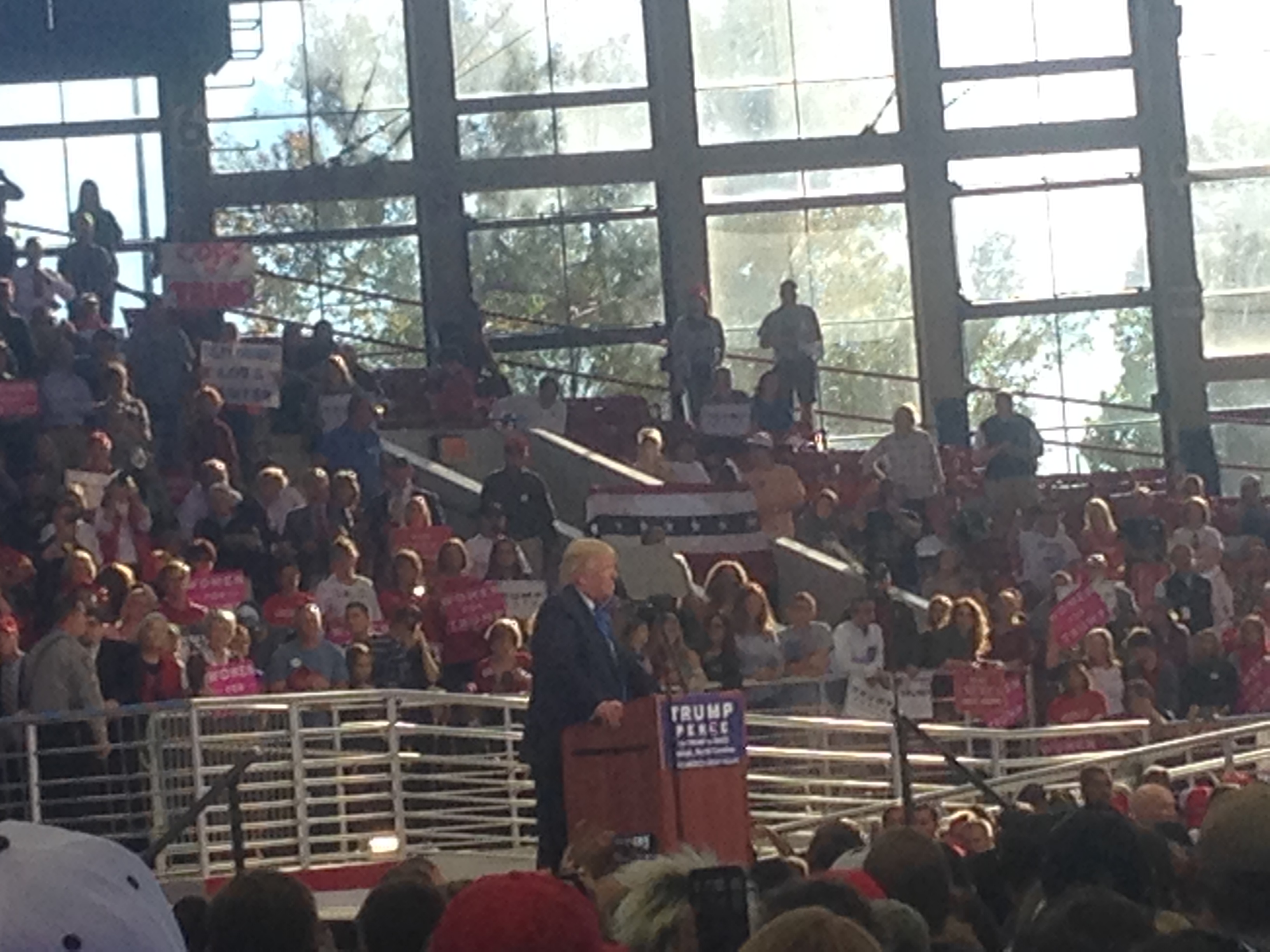
In the early hours of November 9, former Secretary of State Hillary Clinton called Donald Trump to concede the race for the presidency to him. Soon afterward, Trump gave his victory speech at the New York Hilton in Manhattan, saying it’s time “for America to bind the wounds of division.”
After his victory was announced on most of the major networks, anger rose in heavily Democratic areas of the country. In Oakland, California, protesters disrupted local transportation networks in protest of Donald Trump’s ascension to the presidency, and protests occurred in college campuses across the country.
However, Trump likely won’t cause the end of America as we know it.
One fear shared amongst protesters is that Donald Trump will wield too much power as president. However, the checks and balances system established in the Constitution prevents such a thing from happening. The outline for our government, as USConstitution.net puts it, “is deliberately ineffficient.”
When the founders of the United States were “creating” the American republic, they saw the oppressive rule of absolute monarchs in Europe, and they wanted to avoid that from happening in the United States. To prevent an “absolute monarchy” from materializing in the United States, the founding father separated the powers of government amongst three branches: the executive, the legislative, and the judicial.
The executive branch, which Trump will run starting January 20, 2017, has the power to control the military, appoint judges, veto bills passed by Congress, and make treaties. However, the legislative and judicial branches have a check on all of those powers. The legislature (Congress) is the only branch capable of declaring war, it can overturn any veto the President makes, and the Senate has to approve of any judges the President appoints, and any treaty he or she formulates. The judiciary (Supreme Court) can overrule any presidential action by deeming it unconstitutional.
As many of us know, however, Bush sent troops into Iraq and Afghanistan without a formal declaration of war from Congress, and John F. Kennedy and Lyndon Johnson did the same in Vietnam. What’s preventing Trump from doing the same? The War Powers Resolution, passed in 1973, restricts what the President can do with the United States military, in terms of intervening in foreign lands. The law dictates that the president can only send troops to where war is imminent, and even then, he or she can only send troops into an area for sixty days without congressional approval. With the invasions of Iraq and Afghanistan, Bush only managed to get support due to the September 11 attacks, so another devastating event would be necessary for Trump to gain support for a foreign war.
Outside of the government, Trump has an even larger force checking his power: the American public. According to BBC, 47.9% of the vote went to Hillary Clinton, and 47.2% of the vote went to Donald Trump, meaning that more people voted for Hillary Clinton than Donald Trump. Similar situations have happened before with candidates not receiving the most popular votes, but still receiving the presidency. This happened in 1824, 1876, 1888 and 2000. Just like the victors in those cases, Trump will have to pay attention to the large part of the populace that is against him and work to keep them content as to not cause an even larger movement against his presidency.
On the same note, to remain in power, Trump has to be popular, and to be popular, he needs to enact policies that a majority (or at least a plurality) of the American public supports. If he doesn’t, and enacts policies that the American people disapprove of, he’ll be voted out of office in 2020 with ease. If he becomes monstrously unpopular before then, the public could effectively rid him of policy-making powers by voting in Democrats to Congress in the midterm election in 2018, like the country did to Obama in the 2010 midterms, and to Bush in the 2006 midterms.
All in all, Donald Trump probably won’t destroy the United States, nor will any future president of the United States. The checks and balances system established by the Constitution makes it so that no branch of government has too much power, and the American people will voice their opinions on the president-elect’s actions in the years to come, whether it be through demonstrations or through the ballot box.